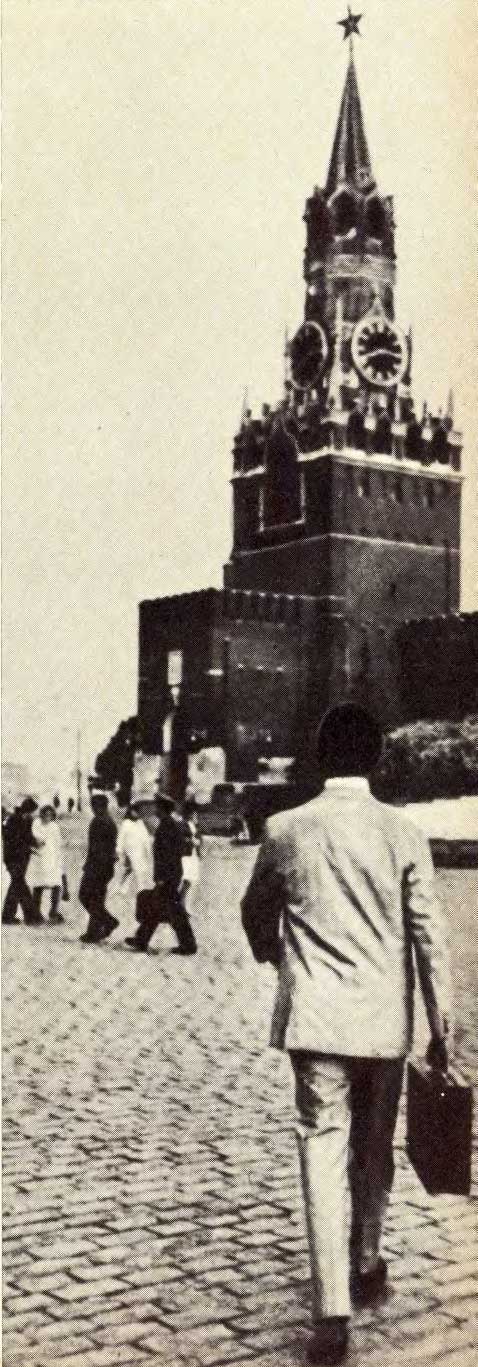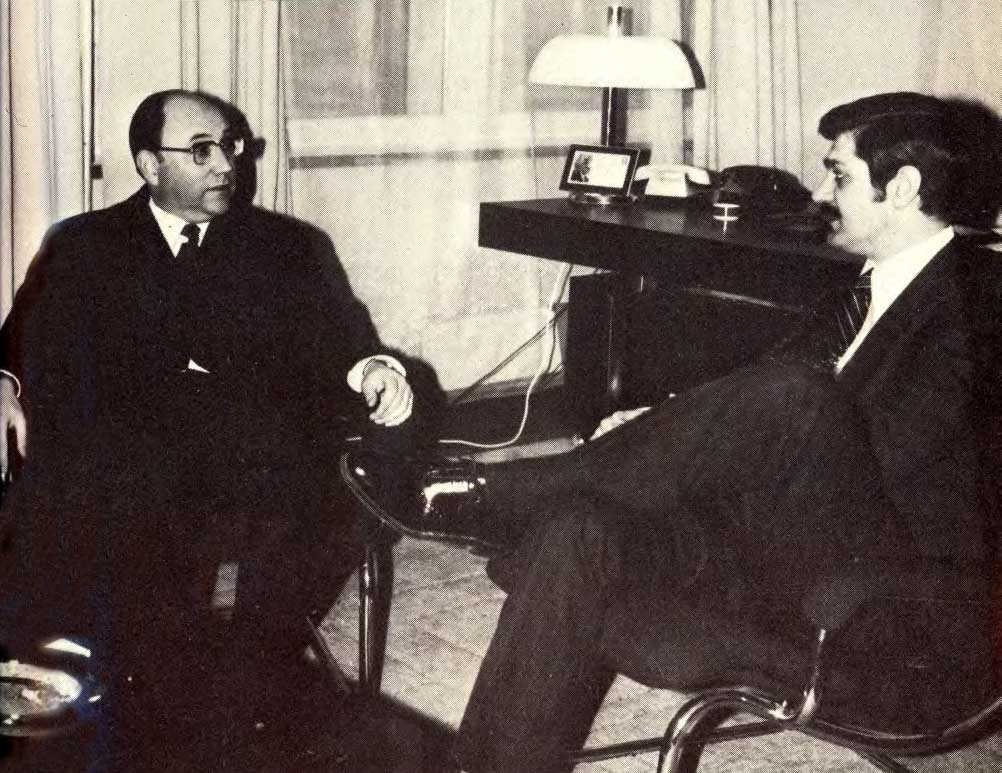Our man in Moscow... USSR and commerce...
 In an ad which appeared in many foreign newspapers, the Bank of America publicised "our man in Moscow", Alex S. Yankovich, a vice-president of the bank, one of whose tasks is to help businessmen make contact with their counterparts in the Soviet Union. In an ad which appeared in many foreign newspapers, the Bank of America publicised "our man in Moscow", Alex S. Yankovich, a vice-president of the bank, one of whose tasks is to help businessmen make contact with their counterparts in the Soviet Union.
SPUTNIK publishes an interview (The statements of Mr. Yankovich are retranslated from the Russian)
which Mr. Yankovich gave to a correspondent of the weekly Nedelya.
by Alexei YEVSEYEV
from the weekly Nedelya
"The opening of our Moscow office was held without any fanfare," the vice-president of the Bank of America said in answering a question of a correspondent of the weekly Nedelya. "No banquets, no speeches, no toasts. We simply sat down at our desks and began to work.
"Our first visitor was an old client and a personal friend of mine. Bill Helvey, an adviser of Getz Brothers. He was here to organise a display of the products of his firm — medical equipment — which interested several Soviet foreign trade organisations. So he came to us for advice on concluding contracts.
"... Well, before long we found ourselves working at top tempo. Businessmen were coming to the office every day to consult us on this or that problem. Many were regular clients, often financed by our bank. For example, Philip Morris (yes, cigarettes). And Cook Industries — a large company dealing in corn, wheat and cotton. Several American businessmen held discussions in our office with their counterparts from the Soviet Exportkhleb Corporation. We played host to businessmen from the Monsanto firm (chemical and oil refining equipment) and the Dupont company, which has extensive plans for business cooperation with the Soviet Union.
"Among our frequent callers are representatives of the giant Caterpillar firm which recently concluded an agreement to deliver $68 million worth of powerful tractors and building machinery to your country. We are financing the contract. Incidentally, the first consignment of these machines has already arrived in Murmansk.
"I have just received gentlemen from Envirotech. This firm concentrates on problems posed by environmental pollution (I am happy to see that you have not reached our 'level' in this field and are worrying in advance)... In general, we are never idle.
CORRESPONDENT: "In discussing your work you have already partially answered my next question. Still, what tasks lie ahead of the Moscow representation of the Bank of America?"
Mr. YANKOVICH: "In general, we are here to assist the bank's clients in making business contacts with the Soviet Union. More concretely, we organise meetings of our clients (they come to Moscow from Japan, France, Federal Germany and other countries as well as the United States), with the required people, put them in touch with Soviet banks and foreign trade organisations. But these are so to speak, the day-to-day tasks. What I would call the strategic policy of our office is to improve business relations between our two countries and stimulate a steady growth. Since I regularly inform the board of the Bank of America about the Soviet businessmen's feelings and requirements you could probably think of our representation here as a kind of barometer."
CORRESPONDENT: "How do you think the barometer of business contacts between our countries stands now?"
Mr. YANKOVICH: "Of course, higher than it was: the period of the cold war is receding into the past. To date more than ten American firms have already opened branches in Moscow. Incidentally, most of these firms are our regular clients. . . Businessmen from the United States are coming to Moscow in an unceasing flow. Business America is aware of the benefits of contacts with the Soviet Union."
CORRESPONDENT: "What financial deal with our country does the Bank of America consider to be the most significant for itself?”
Mr. YANKOVICH: "Of course, the one under which we are financing the building of a giant integrated chemical plant near Kuibyshev which will turn out agricultural chemicals. It will require 600 million: 180 million have been issued by our bank and an equal sum by the Federal Export-Import Bank. The rest of the bill is being footed by the Soviet side. In general, it is an impressive American-Soviet financial project... I attended the signing of its final documents in San Francisco. That session lasted seven hours. I appreciated the skill of Russian businessmen."
Then, not without pride, Mr. Yankovich showed me his three comparatively small rooms on the 20th floor of a Moscow hotel. The desks were piled high with papers and a typewriter was clattering away. Standing on the floor resting against the wall was a newly purchased print showing Leningrad's Dvortsovaya Square.
"I would like to hang next to it another print, one depicting the October revolution. Let my visitors see it and think of what it means ... For many of our businessmen your country still remains Russia although it has for a long time been the Soviet Union. Their eyes must be opened to your present," Mr. Yankovich concluded. "That is what we are doing ..."

Alex S. Yankovich (right) is talking with Werner Palitsch, a customer from the FRG, in his Moscow office
Photograph by Igor SELIVERSTOV
Sputnik. №5 May 1974 |

